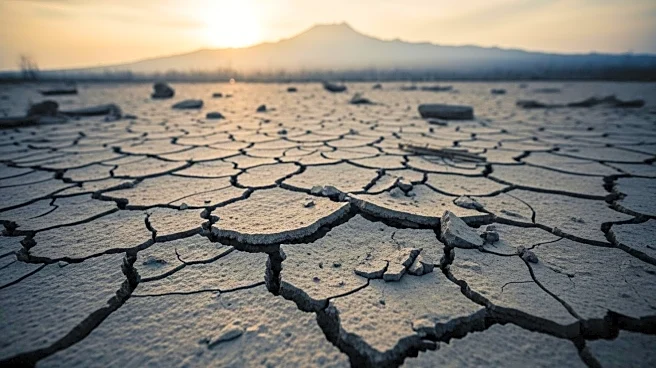What is the story about?
What's Happening?
A magnitude 6 earthquake has struck Afghanistan, killing over 800 people and injuring at least 2,800. The disaster has further strained the Taliban administration, which is already dealing with a humanitarian crisis due to reduced foreign aid and the deportation of Afghans from neighboring countries. The earthquake's epicenter was in the eastern provinces of Kunar and Nangarhar, where rescue efforts are ongoing. The Taliban has appealed for international aid to address the devastation, as helicopters transport the injured to hospitals and rescue teams work to reach remote areas.
Why It's Important?
The earthquake adds to the challenges faced by the Taliban, which is struggling to manage the country's humanitarian needs amid international isolation. The disaster highlights the vulnerability of Afghanistan's infrastructure and the need for international support in disaster response. The Taliban's appeal for aid underscores the regime's dependence on external assistance, despite its controversial policies. The situation raises questions about the international community's willingness to engage with the Taliban and the potential impact on Afghanistan's recovery efforts.
What's Next?
The response of the international community to the Taliban's appeal will be critical in determining the extent of aid provided to Afghanistan. Humanitarian organizations may face challenges in delivering aid due to logistical constraints and political considerations. The Taliban's handling of the crisis could influence its international relations and the willingness of other countries to provide support. The ongoing humanitarian needs in Afghanistan may prompt discussions on how to balance aid delivery with political concerns.
Beyond the Headlines
The earthquake may lead to a reassessment of international aid strategies in Afghanistan, particularly in light of the Taliban's governance. The disaster highlights the ethical challenges faced by aid organizations in providing assistance to populations under regimes with questionable human rights records. The situation could prompt a broader discussion on the role of international aid in conflict-affected regions and the importance of ensuring that aid reaches those in need without empowering oppressive regimes.















